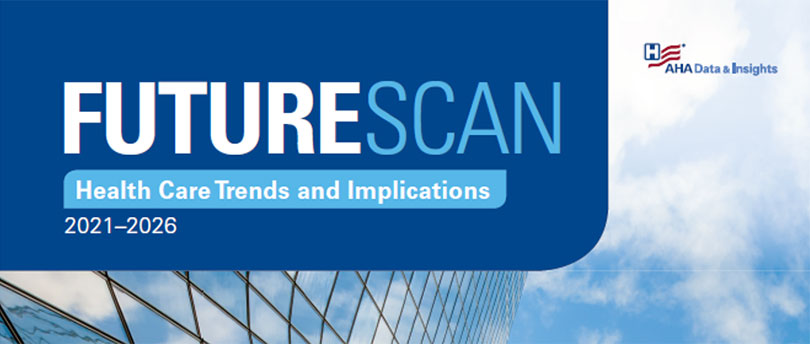
Renowned futurist, Ian Morrison, PhD, did a first-rate job summarizing FutureScan Health Care Trends and Implications 2021 – 2026 in the SHSMD webinar yesterday, which focused upon transforming healthcare while responding to a pandemic. If you didn’t have the free hour (or were busy responding to the pandemic yourself), here are my 7 key takeaways, including Morrison’s most poignant opinions:
- “Deeply integrated networks are more resilient in a crisis than organizations without.” The historically slow-responding health care industry demonstrated significant agility and innovation this past year. This has underscored the paramount importance of scalability, network integration and emergency/crisis response plans, as large integrated systems made substantial contributions in their response.
- “While COVID has both exacerbated and highlighted existing health equities, we cannot expect health system balance sheets to take on all the ills of the world.” Native Americans, African Americans and Latinos are much more likely to need hospitalization from COVID than non-Latino/White. Morrison stressed that while addressing health inequities and health outcomes cannot be underestimated, “hospitals cannot solve this alone.” The key to success is joining with stakeholders, partnering strategically with community resources and tracking data. He also propones applying a “managed care rigor” to social services, with improved targeting and systematic deployment of resources.
- “Interpersonal violence is a major public health concern in the U.S.” (quoting Michael Levas, M.D., Children’s Wisconsin Health System) In example, gun violence is the second highest cause of death (behind auto accidents) for children. With ERs as the front-line for violence intervention, Hospital Violence Intervention Programs (HVIPs) are aimed at decreasing ED recidivism and treating violence as a psychosocial disease – one that is communicable and predictable.
- “Retail storefronts and internet-linked platforms are creating Amazon-primed health care consumers.” (quoting Jane Sarasohn-Kahn, health economist) The post-COVID-19 health care consumer will seek safety, convenience and value. Pivotal provisions will include a frictionless customer experience, increased retail health, digital health and self-care. Health systems should map patient journeys for engagement to innovate new delivery models.
- “AI is the Hamburger Helper for busy clinicians,” espouses Morrison. Rather than replace the doctor, (AI can’t provide care or solutions), it will help them (with insights). Key areas of application include medical imaging, predictive analytics, precision medicine, patient safety, quality measurement and performance improvement. Morrison believes the great “under-told story” is that of AI potential in administrative applications, which comprise 25% of hospital costs.
- “Leaders need to provide hope, confidence and calm in the storm,” (quoting Nancy Schlichting, FACHE, former president and CEO of Henry Ford Health System). In this age of disruption, health care organizations must establish a culture of change, transparency and innovation. Employees and the medical staff are central to success. As is the C-Suite leading with quality, visibility, accessibility and a climate of positivity. “I believe the CEO is the Chief Example Officer,” says Morrison.
- “I’m in reverential awe of the response of healthcare institutions in the past year,” shared Morrison.
And this pretty much summed it up! I think we all are.























